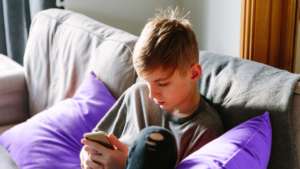
The ISPCC has welcomed the publication of the Joint Oireachtas Committee on Education and Skills Report on Relationships and Sexuality Education and its recommendations in relation to the need for Relationships and Sexuality Education (RSE) to be updated in order to reflect the changes that have taken place in Ireland since the programme was published in 1999.
The national child protection charity expressed support for the report’s recommendation that Relationships and Sexuality Education (RSE) ought to be delivered at primary level in an age and developmentally-friendly manner, with appropriate provision made for children with disabilities, encapsulating a whole-school approach. This reflects the ISPCC’s strong belief in the importance of prevention and early intervention models.
The organisation also highlighted the Committee’s recommendations that accreditation be afforded to teachers who deliver the RSE and SPHE programmes and that external providers of RSE be regulated, in order to ensure accuracy and consistency in the delivery of the syllabus to children and young people.
• ISPCC Chief Executive John Church said: “The ISPCC very much welcomes the publication of this report, which outlines how Relationships and Sexuality Education in our schools ought to be updated in order to reflect the needs of children and young people in today’s Ireland and their lived realities.
“The recommendations of this report, when implemented, will ensure RSE and SPHE incorporates the needs of all children and young people in Ireland – including those who live with a disability, those who identify as LGBTQI+ and those whose gender is different to that which they were assigned at birth. We fully support the recommendation that a mechanism be put in place for the recording of incidents of homophobic and transphobic bullying in schools.
• “Children often search online for answers to questions which have not to date been covered sufficiently or at all by their RSE education. The results to these searches can be pornographic in nature and can lead to confusion and perceived unrealistic expectations. The ISPCC fully supports the report’s recommendation that the negative impact of pornography should form an integral and fundamental part of discussions on and reforms of SPHE and RSE reinforcing positively-framed sexual experiences.
• “Irish society in recent decades has heard of many instances where children who were sexually abused did not have the language to explain what was happening to them or the understanding that what was happening to them was wrong. When implemented, the recommendations of this report could play a role in the prevention of or early intervention in child sexual abuse cases, by making children from primary school age familiar with the concept of sexuality and the distinction between healthy and unhealthy, or inappropriate, relationships.
“The ISPCC looks forward to the recommendations of the report being implemented in full.”
